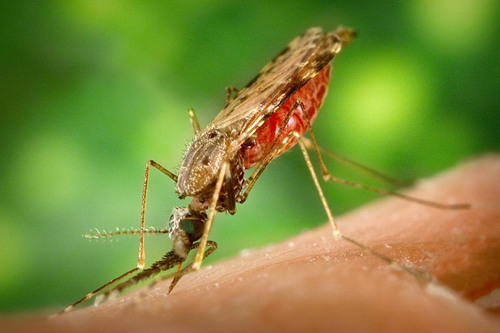SCIENTISTS are launching research into why some Scots have developed a natural resistance to midge bites.
It is currently known that around one in seven Scots have a biologically built-in midge repellent that means they suffer fewer bites.
Researchers have discovered that those with high levels of ketone – a chemical present in human body odour – are bitten far less.
In some tests, those with the higher levels were bitten five times less than those with a lower level.

But now a new round of research hopes to uncover why and how some Scots have made the leap to super-repeller status whilst others remain hard-bitten.
Dr James Logan – the entomologist leading the study – said: “As many as one in seven of us may be natural midge repellers.
“We have looked at the genetics of this, to see whether you can pass on whether you are attractive or not to midge, and you can.
“It is controlled by your genes. The next stage is to identify the genes that are involved.
“What we want to do is be able to screen populations to see whether populations have evolved to produce these natural repellents.”
Midges have existed since prehistoric times, and although most species of the flying insect do not bite, the Scottish variant is best know for it’s blood-sucking appetite.
The Scottish midge species is presently believed to be responsible for 90% of all bites on humans in Scotland.
Logan added: “They can be found in other parts of the world, but they are not present in the numbers we have in Scotland.
“Scotland is their home and where they breed the best.”
